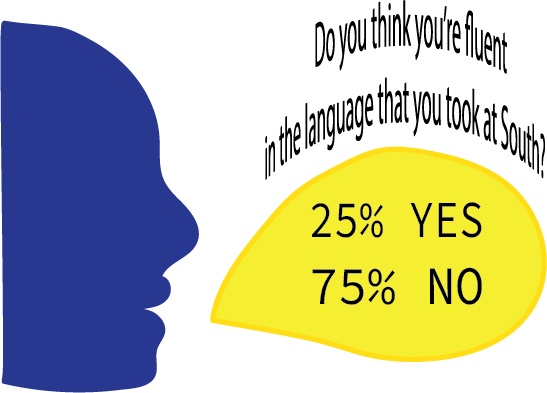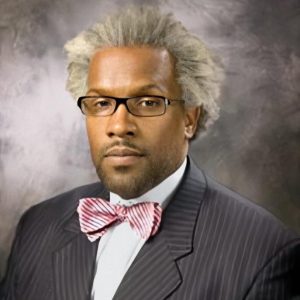How fluent are students who take a language class?

On the Tower Pulse Twitter, we asked if people thought they were fluent in the language they took at South. These were their results. Graphic courtesy of Abi Wilson ’20.
November 1, 2018
Students leaving South are equipped to handle the hard work that comes with college language classes, according to Spanish teacher, Cindy Morefield-Pinder.
Many language teachers have been contacted by former students raving about how well they were prepared for even their non-entry level classes at colleges according to Morefield-Pinder.
However, speaking a language and studying a language are two very different skills to have, according to Meredith Wenzler ’19.
“I don’t think that I’d be fluent in regards to knowing everything that everyone is saying,” said Wenzler. “But I can carry on a conversation and read it pretty well.”
Wenzler has taken four years of German but believes that her skills come from the great teachers at South.
“Frau Richman was really an amazing teacher,” Wenzler said. “And because of that, I thought it (taking German) was the best choice for me.”
Many students plan to continue studying their language in college, and Wenzler also hopes to continue on using German after the four years she has already taken.
“I’m planning on taking German courses when I go to college,” Wenzler said. “I also plan on spending some time in Germany at some point in my life.”
Students can also use their language even if they don’t plan on studying it specifically, according to Meredith McDonnell ’19.
“I want to go into law, and a lot of legal terms are in Latin,” McDonnell said. “And having background knowledge will definitely help me in that.”
The language teachers have a lot of passion and love for what they’re teaching, according to McDonnell.
“I know (Spanish) is one of the most spoken languages in the world,” Rachel Summerfield ’20 said. “So I was really interested in becoming fluent in it.”
Summerfield wants to be able to communicate with the world around her, so speaking was one of the main priorities she had for taking a language at South.
“I don’t think that I would be able to speak Spanish anymore,” Alynne Sickmiller ’78 said.
Sickmiller took Spanish around 40 years ago at South and then took four more years in college.
“I really haven’t used Spanish since leaving college,” Sickmiller said. “It was never something that I felt confident in.”
Sickmiller said she was fine in the transition from high school to college level language classes.
“South is effective in teaching language because we have good materials,” Morefield-Pinder said. “We have students who are already good at reading and writing and then add language into the mix.”
Contrary to many students’ hopes, Morefield-Pinder says that fluency is not something that can be taught in a classroom.
“I don’t think (fluency) is a label we can put on kids,” Morefield-Pinder said. “Especially if when they’re not living in an actual place that speaks (their second language) 24/7.”
Even people who have spoken a language their entire life may not be “truly fluent”, according to Morefield-Pinder.
“When the doctor talks to me about things,” Morefield-Pinder said. “I may not understand all of the verbiage used, but does that make me not fluent in English?”
According to a twitter poll on The Tower Pulse, approximately 25 percent of students feel confident after language classes at South, from a sample size of 73.
“(Fluency) is really a strange label that people want to use to say that they’re done with Spanish or they’re done with English,” Morefield-Pinder said. “When really there is just too much to ever be done.”














































































